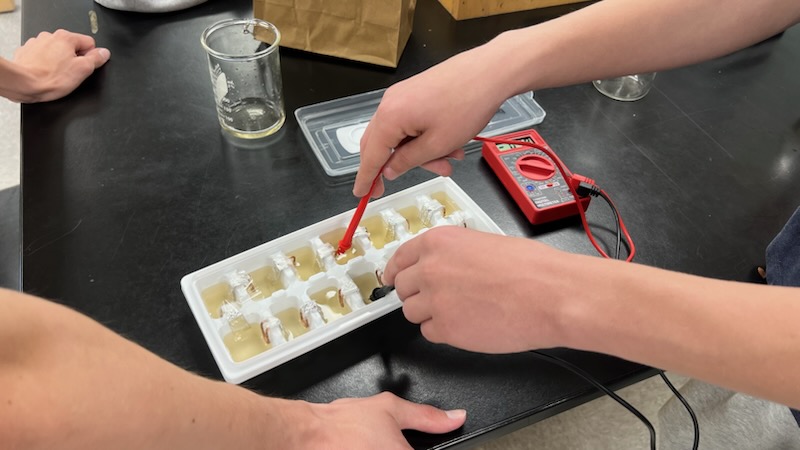Across the nation, Advanced Placement classes provide access to rigorous college-level classes for hardworking students. In these classes, students can study college-level work and receive college credit while still being in high school.
“I am in AP biology right now; I am learning a lot of stuff that I didn’t learn in regular biology class,” Madeline Ervin, ’04, said. “It is really a lot of work but it will pay off when I am in college so I don’t have to take biology.”
For some, AP classes can make their college career shorter, free them to be able to choose electives or give them more study time.
“A student who scored a 3, 4 or 5 on the AP test would lighten their work load and could save money,” John Endicott, director of college admissions at Fresno Pacific University, said. “They can take other classes, choose electives, have more study time or graduate early.”
According to the College Board Nov. 2001 news periodical, tests administered to AP physics and mathematics students show them to be more able to benefit from university studies in related fields than students who do not take the AP classes.
“These results demonstrate that students who do well on the AP calculus and AP physic exams are indeed at the top of the world in academic achievement,” Lee Jones, executive director of the College Board Advanced Placement Program, said in a Nov. 2001 article by the College Board news periodical.
After finishing the class, not all students are guaranteed to pass the AP test. Some students who do not pass the test still fell the classes are beneficial.
“Some students who did not pass the test feel that they were more prepared for college,” Ginger Niemeyer, high school vice principle and AP English teacher, said. “In AP classes there is more reading, writing and higher expectations.”
The College Board recommends that AP biology be taught in double periods. “AP biology is the hardest AP class,” Rod Atchley, AP biology and biology teacher, said. “The college board recommends to teach AP biology in double periods. Instead of double periods we make up that time with labs on weekends and sometimes after school.”
Many AP students feel as if they are truly in a college class and working at a college level. “The word Advanced Placement is truly living up to what it means,” Julie Fujihara, ’03, said. “It is the hardest class that I have ever taken my whole life. Even though it is really hard work, I think that I will be well prepared for college.”
Materials in AP classes become more like college classes because of their great detail and extensive memorizing.
“All of the material is really detailed,” Evan Sanders, ’03, said. “You have to memorize most of it for tests during the year and for the final test.”
For some the thought of enrolling in an AP class can be overwhelming, but it should not be if the student is well prepared.
“Some students will be reluctant because some think they can’t do it,” Sallie Wilson, state department education consultant, said. “Anyone who has been prepared can do it. Don’t say you can’t.”






